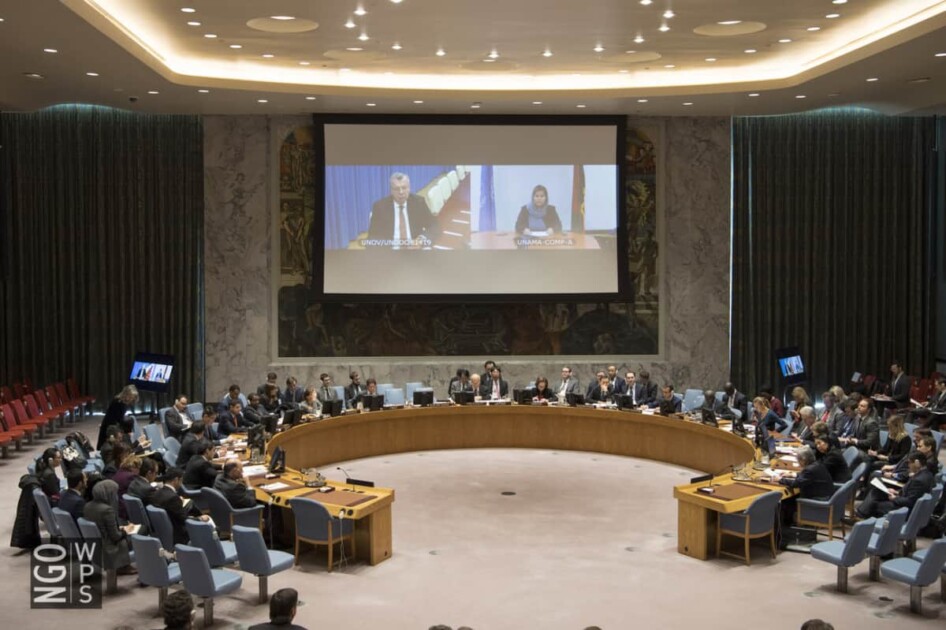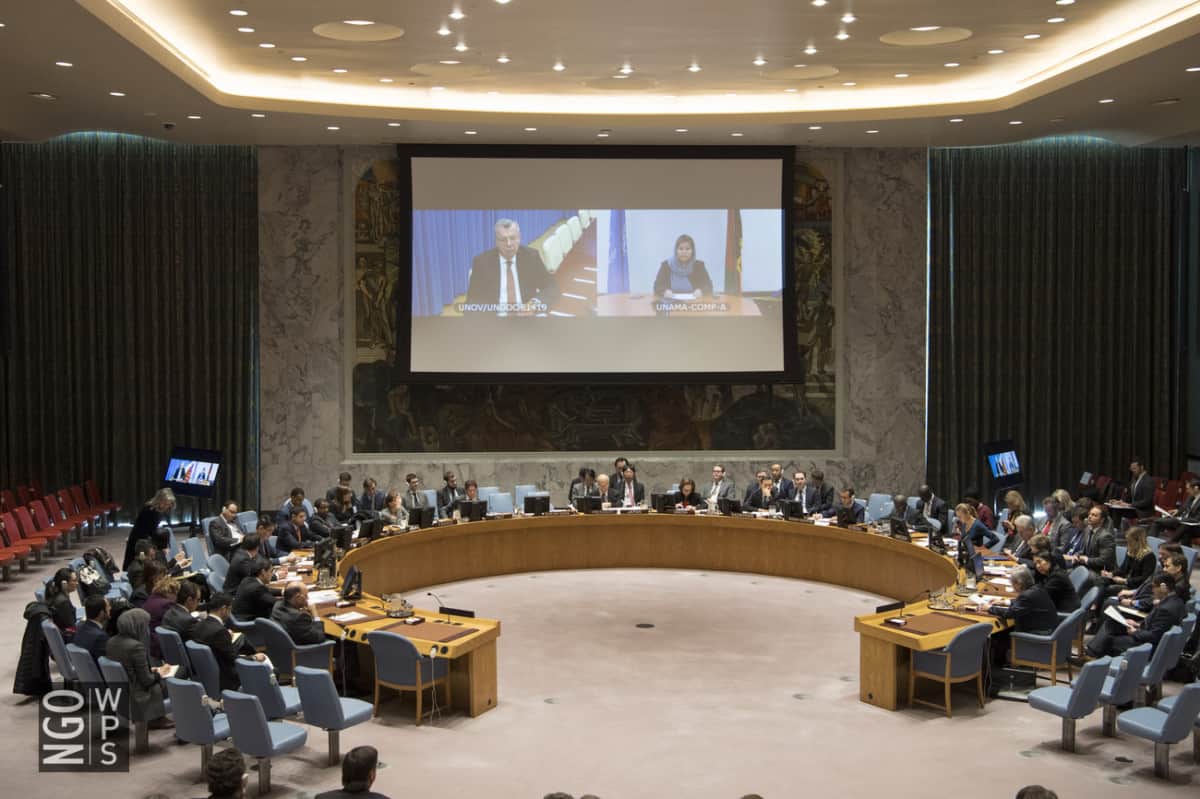Democratic Republic of the Congo
Women in the Democratic Republic of Congo continue to face widespread sexual violence, disease, and displacement in conflict situations arising from clashes between dozens of armed groups. Often, sexual violence and rape are used as terror tactics and weapons of war, and despite the ratification of the Convention on the Elimination of All Forms of Discrimination against Women (CEDAW) and the Women’s Platform for the Peace, Security and Cooperation Framework, women are still largely underrepresented in peacebuilding efforts. Additionally, women activists face rape as a form of torture by government actors who disagree with their political activity. The United Nations Organization Stabilization Mission in the DRC (MONUSCO) aims to provide protection for civilians, including reducing the threat of armed groups perpetrating sexual and gender-based violence, monitoring and reporting on sexual violence and ensuring women’s participation in stabilization and national political dialogue.
Democratic Republic of the Congo
Women in the Democratic Republic of the Congo continue to face widespread sexual violence, disease, and displacement in conflict situations arising from clashes between dozens of armed groups. Often, sexual violence and rape are used as terror tactics and weapons of war, and despite the ratification of the Convention on the Elimination of All Forms of Discrimination against Women (CEDAW), and the Women’s Platform for the Peace, Security and Cooperation Framework, women are still largely underrepresented in peacebuilding efforts.
Additionally, women activists face rape as a form of torture by government actors who disagree with their political activity. The United Nations Organization Stabilization Mission in the DRC (MONUSCO) aims to provide protection for civilians, including reducing the threat of armed groups perpetrating sexual and gender-based violence, monitoring and reporting on sexual violence and ensuring women’s participation in stabilization and national political dialogue.
Current and Past Recommendations to the UN Security Council (Monthly Action Points)
The Security Council should ensure that the discussion regarding the report of the political agreement in DRC improves upon the previous report (S/2017/712), which included minimal references to women’s participation and no gender analysis of the dynamics of the situation. There should be regular, substantive consultations with civil society, including particularly women’s groups as part of good offices efforts; these consultations should be reported on in any briefings to the Council. Further, in both the report and briefings, there should be acknowledgement and analysis of the significant barriers to women’s representation and participation in political and security processes that remain, including but not limited to lack of political will, inadequate financing, and inconsistent implementation of gendered analysis of conflict and peacebuilding efforts as well as relevant gender equality policy frameworks. The restrictions to democratic space throughout the country and ongoing targeting of civil society activists (S/2017/565) should be of considerable concern to the Council. Efforts to ensure women politicians, candidates, activists, and human rights defenders are protected should be prioritized in the context of implementation of the political agreement, the national action plan (NAP) on Resolution 1325 (2000), and any national strategies aimed at combatting SGBV (CEDAW/C/COD/CO/6-7). It is imperative that human rights violations continue to be monitored closely through consultation with civil society, including women community leaders and human rights defenders and that perpetrators are identified, arrested, and prosecuted.
Relevant Resources











